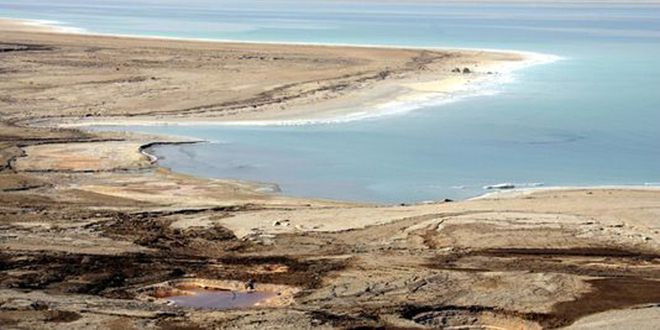Israel and Jordan join forces to save the Dead Sea
(Baonghean) - Faced with increasingly serious water scarcity in the Dead Sea area, the two countries of Israel and Jordan have just decided to sign a treaty to allow pumping water from the Red Sea to the Dead Sea and extending to the West Bank.
Recently, in Amman, Jordan, representatives of the two countries Israel and Jordan signed a water supply agreement to partly solve the drought situation in the Dead Sea, Jordan, Israel and the West Bank. Jordan's Petra news agency said that this document focuses on "implementing the first part" of the letter of intent signed in December 2013 in Washington between representatives of Israel, Jordan and Palestine in an effort to save the Dead Sea. The agreement was signed in the presence of representatives of the United States and the World Bank.
 |
| View of the Dead Sea. Photo: AFP/Khalil Mazraawi |
Specifically, a water pumping system will be built in the Gulf of Aqaba located in the North of the Red Sea with a capacity of up to 300 million m3 per year. Of which, a large amount of water will be transferred to the Dead Sea, the rest will be desalinated to supply Israel and Jordan. The project also provides the Palestinians with about 30 million m3 of water per year. It is known that according to scientists' estimates, if humans do not solve the serious drought in this area, by 2050, the Dead Sea may completely dry up.
After signing the agreement, the parties launched a tender for the construction of the pumping station, which is estimated to cost up to 90 million USD and will last for 3 years. Israeli Minister of Regional Cooperation Silvan Shalom, who is responsible for cooperation with Jordan, said, “This is the most important project between the two countries since Israel signed a peace treaty with Jordan in 1994.” Mr. Silvan assessed that this project will be a peak in “construction cooperation” between the two countries.
In 2012, the World Bank published a study showing the feasibility of the project. However, some environmental organizations warned that pumping water from the Red Sea to the Dead Sea could affect the fragile ecosystem of the Dead Sea. Environmental activists said that a “scientific assessment” was needed to better understand the consequences of mixing the two waters to avoid disrupting the ecosystem.
Chu Thanh(According to LeMonde June 27)






